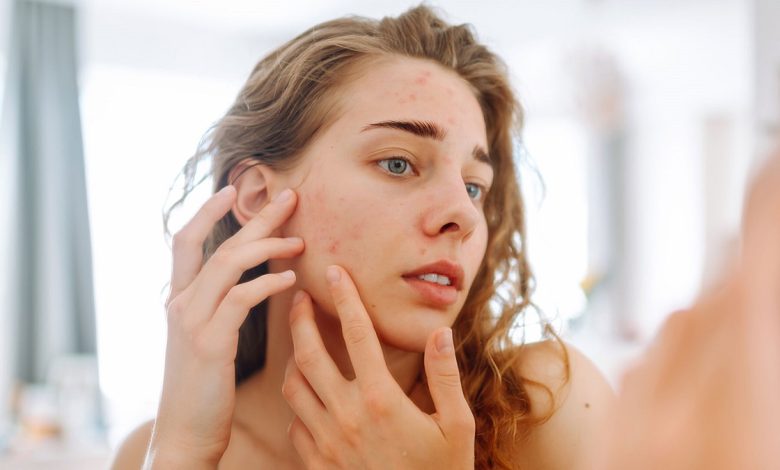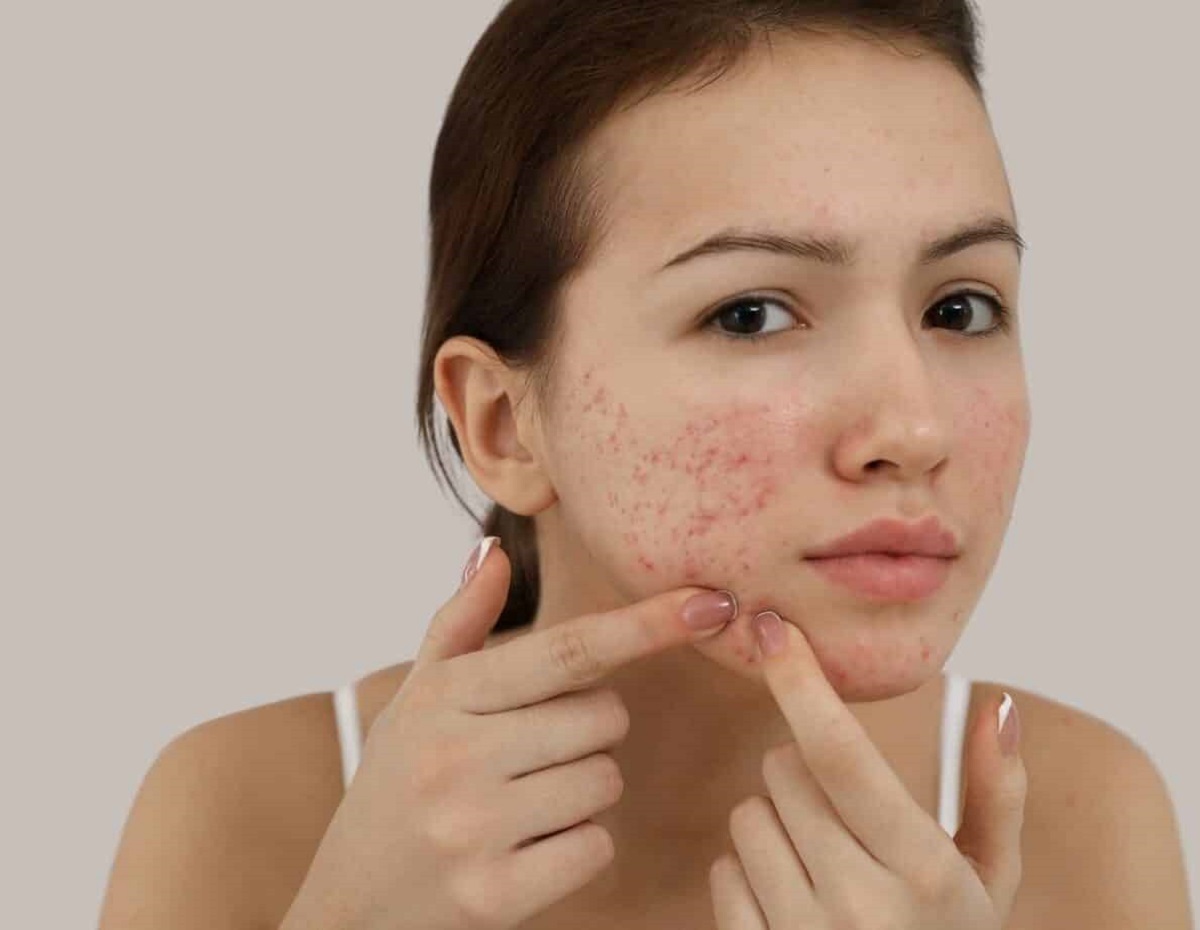8 Effective Steps For Acne Management In Teens: A Guide To Clearer Skin

Acne Management In Teens: Acne is a common concern for teenagers, often causing frustration and affecting self-esteem during a sensitive period of life.
Due to hormonal changes, teens are particularly prone to breakouts. However, with a consistent skincare routine and healthy habits, it is possible to manage and even prevent acne. This guide outlines effective steps for teens to achieve clearer skin.
Effective Steps For Acne Management In Teens
1. Cleanse Gently, Twice A Day

Acne Management In Teens, Cleansing is the foundation of any skincare routine. For teens, a gentle cleanser used twice daily—in the morning and at night—is essential for removing excess oil, sweat, and dirt accumulated throughout the day. Opt for a mild, non-comedogenic (non-pore-clogging) cleanser, which will help keep pores clear without stripping the skin of its natural oils. Avoid scrubbing aggressively; instead, wash with fingertips in gentle, circular motions. Over-cleansing or using harsh soaps can irritate the skin and make acne worse.
2. Apply Targeted Acne Treatments
Acne Management In Teens, Acne treatments containing ingredients like benzoyl peroxide or salicylic acid can be very effective for managing breakouts. Benzoyl peroxide helps kill acne-causing bacteria, while salicylic acid exfoliates the skin and unclogs pores. These treatments come in various forms—such as gels, creams, and spot treatments—and can be used after cleansing. Start with a lower concentration to avoid irritation, and gradually increase if needed. It’s also helpful to patch-test products before widespread application to avoid adverse reactions.
3. Moisturize Daily
Acne Management In Teens, While it might seem counterintuitive for acne-prone skin, using a moisturizer is crucial. Acne treatments can be drying, and when the skin is too dry, it may produce even more oil, worsening breakouts. Choose a lightweight, oil-free moisturizer labeled “non-comedogenic” to maintain hydration without clogging pores. Moisturizing also helps keep the skin barrier healthy, making it more resilient against irritants and bacteria.
4. Avoid Touching The Face

Acne Management In Teens, Touching or picking at acne can spread bacteria, worsen inflammation, and even lead to scarring. Remind yourself to avoid touching your face throughout the day, and resist the urge to pick at pimples. If it’s challenging to break the habit, keeping tissues nearby or using a fidget toy can help. For breakouts that are painful or persistent, consider seeing a dermatologist rather than attempting to handle it yourself.
5. Choose Makeup And Sunscreen Wisely
Acne Management In Teens, Makeup and sunscreen are part of many teens’ routines, but the wrong products can clog pores and exacerbate acne. Opt for oil-free, non-comedogenic products when choosing foundation or concealer. Avoid heavy, full-coverage products that can trap bacteria and oil. When it comes to sunscreen, a lightweight, oil-free option is best. Sunscreen is essential as acne treatments can make skin more sensitive to the sun, which can lead to dark spots and scarring.
6. Maintain A Balanced Diet
Acne Management In Teens, A healthy diet can play a role in skin health. While foods don’t directly cause acne, some studies suggest that high-glycemic foods (such as sugary snacks and sodas) and dairy products may contribute to breakouts in some people. Teens should aim for a balanced diet rich in fruits, vegetables, whole grains, and lean proteins, which help support overall health and may reduce acne. Drinking plenty of water can also help keep the skin hydrated and flush out toxins.
7. Practice Stress Management

Acne Management In Teens, Stress can trigger hormonal changes that lead to acne flare-ups. With academic pressures, social relationships, and extracurricular activities, many teens experience stress. Developing stress-management techniques—such as exercise, meditation, journaling, or even taking breaks from social media—can have a positive impact on both mental well-being and skin health.
8. See A Dermatologist If Needed
Acne Management In Teens, If acne persists despite a good skincare routine, consulting a dermatologist can be helpful. Dermatologists can assess the skin type and severity of acne and recommend treatments such as prescription creams, antibiotics, or hormonal therapies. They may also offer advanced treatments like chemical peels, light therapy, or extractions to help reduce breakouts and scarring.
Final Thought
Acne Management In Teens, Managing acne requires patience, but with a consistent approach to skincare and healthy lifestyle habits, teens can make strides in improving their skin. By following these steps—cleansing gently, using targeted treatments, moisturizing, avoiding touching the face, choosing products carefully, eating a balanced diet, managing stress, and seeking professional help when needed—teens can keep their skin clearer and boost their self-confidence. Acne may be a challenge, but with the right care, it is manageable.
Also Read:
The Supreme Night Skincare Routine For Oily And Acne-Prone Skin
Natural Acne Treatments: Does Raw Garlic Treat Acne?
Treatment Of Acne And Pimples With Thread Implantation And Acupuncture




